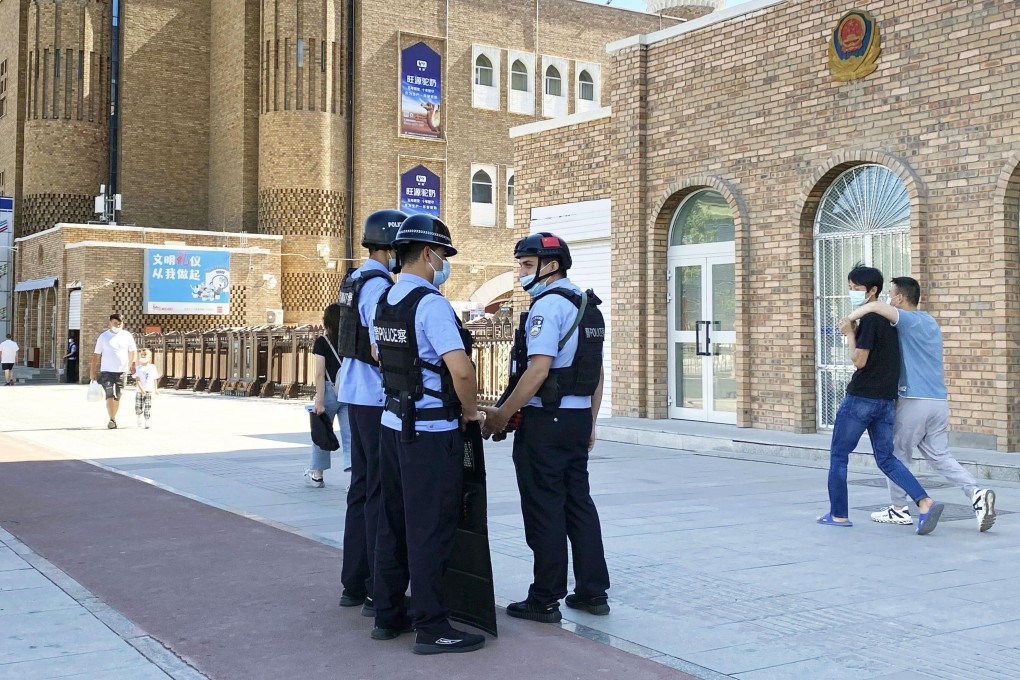Advertisement
China pushes back against Xinjiang criticism in event hosted by its UN delegation
- China’s UN ambassador Zhang Jun hosts virtual event featuring a slate of Xinjiang government officials
- The event took place separately but at the same time the United Nations Human Rights Council was in regular session
Reading Time:3 minutes
Why you can trust SCMP
23

China pushed back against criticism of policies in its Xinjiang Uygur autonomous region (XUAR), calling them “a legitimate struggle against terrorism” in an event that its delegation to the United Nations organised with the participation of Russia and other allies.
The two-hour virtual event called “Xinjiang is a Wonderful Land” was hosted by China’s UN ambassador Zhang Jun, and featured a slate of XUAR government officials including Shawkat Imin, chairman of the standing committee of XUAR’s parliament. It took place separately but at the same time the United Nations Human Rights Council was in regular session.
Members of the council have accused China of subjecting Uygurs and other Muslim minorities to forced labour and mass internment.
Advertisement
The US government and Canadian and British parliaments have accused Beijing of genocide. Earlier this year, the US, EU, UK and Canada banded together to sanction Chinese officials over the suspected human rights abuses.

02:46
UK parliament declares Uygurs suffering ‘genocide’ in China’s Xinjiang
UK parliament declares Uygurs suffering ‘genocide’ in China’s Xinjiang
In an apparent swipe at former US secretary of state Mike Pompeo’s charge that China’s XUAR policy of mass detention is “the stain of the century”, Zhang said that China’s critics “fabricated the lie of the century about the genocide”.
Advertisement
Advertisement
Select Voice
Select Speed
1.00x